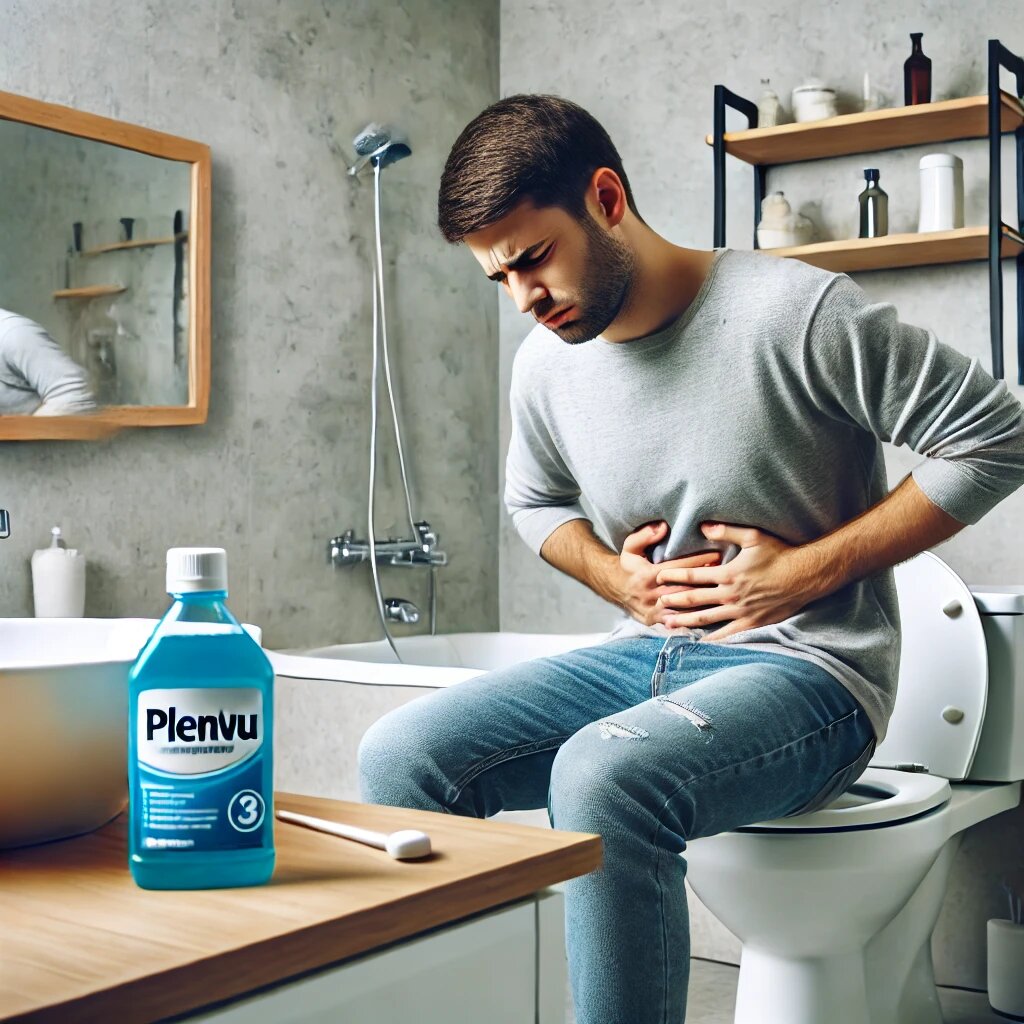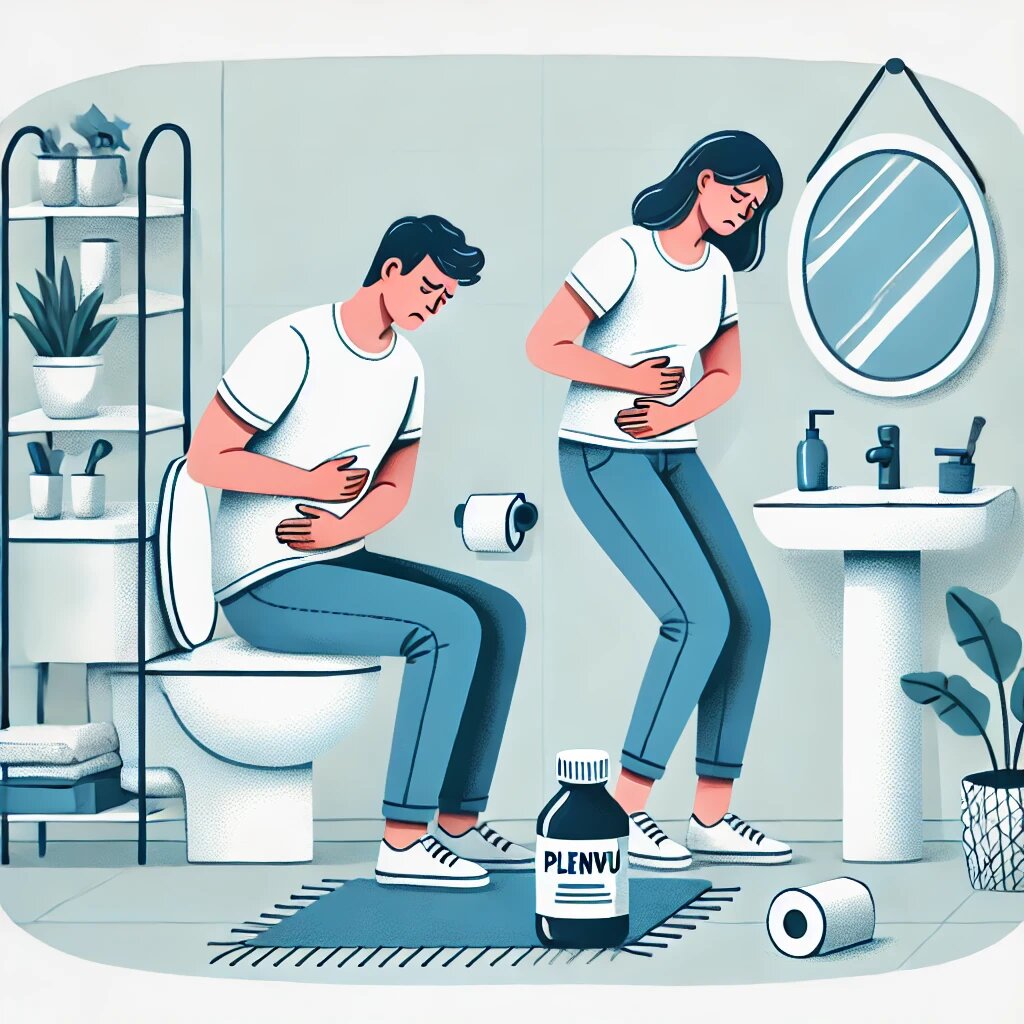Does the Second Dose of Plenvu Make You Poop?

Preparing for a colonoscopy or any other bowel examination can be a daunting task, but it’s an essential step to ensure accurate results.
One of the most common preparations is Plenvu, a bowel cleansing solution. But what happens when you take the second dose? Does it make you poop as much as the first one? Let’s dive into this topic to provide clarity and ease your concerns.
What is Plenvu?
Plenvu is a low-volume polyethylene glycol (PEG) based laxative solution used to clean out the bowel before a colonoscopy.
It contains active ingredients such as macrogol 3350, sodium sulfate, sodium chloride, potassium chloride, ascorbic acid, and sodium ascorbate.
This combination works to induce bowel movements, effectively emptying your intestines.
Why Do You Need a Second Dose?
The purpose of taking the second dose of Plenvu is to ensure that your bowels are completely cleansed before the medical procedure. The first dose helps to eliminate most waste from the colon, but some remaining stool may still need to be removed.
Taking the second dose ensures that any remaining stool is eliminated, providing a clear view for the doctor during the procedure. This allows for accurate diagnosis and treatment, if necessary.
Timing and Scheduling Your Doses
One key to a successful bowel preparation is timing. Typically, the first dose is taken the evening before your colonoscopy, and the second dose is taken the morning of the procedure.
This allows enough time for the medication to work through your system and ensures that your colon is clean by the time of your appointment.
Potential Side Effects
While Plenvu is generally safe and effective, it can cause some side effects, particularly with the second dose:
- Nausea: Some patients may experience nausea or vomiting. If this happens, take small sips of clear fluids and try to stay calm.
- Abdominal Cramping: The second dose can cause abdominal cramping as the bowel movements continue. This is typically a temporary effect.
- Dehydration: As mentioned earlier, dehydration is a risk due to the loss of fluids. Keep drinking clear fluids as advised.
- Electrolyte Imbalance: In some cases, the rapid loss of fluids can lead to an imbalance in electrolytes. Using oral rehydration solutions or sports drinks can help maintain electrolyte balance.
Will You Poop Again After Taking the Second Dose?
Since Plenvu works by stimulating bowel movements, it is expected that you may have another bowel movement after taking the second dose. This is a normal and expected effect of the medication.
However, it is important to note that the second dose usually results in fewer bowel movements compared to the first dose. This is because most of the waste has already been eliminated from your colon.
Tips for Managing Bowel Movements After Taking Plenvu
While it is normal to experience bowel movements after taking Plenvu, there are some ways to manage this side effect:
- Stay close to a bathroom: After taking Plenvu, it is best to plan your day around being near a bathroom. This will make it easier for you to manage any bowel movements that may occur.
- Drink plenty of fluids: It is important to stay hydrated after taking Plenvu. Drinking plenty of water and clear liquids can help ease the effects of the medication on your bowels.
- Avoid heavy or greasy meals: Consuming heavy or greasy foods before or after taking Plenvu can increase the likelihood of diarrhea. Stick to light, easily digestible meals to help manage this side effect.

The Importance of a Complete Cleanse
The second dose is not just a precaution but a necessary step to ensure that the colon is completely clear. An incomplete cleanse can obscure the doctor’s view during a colonoscopy, potentially missing important findings like polyps or lesions. Therefore, adhering to the full regimen, including the second dose, is critical for the accuracy of the procedure.
When Should You Be Concerned?
While experiencing bowel movements after taking the second dose of Plenvu is normal, there are some cases where you should seek medical attention. These include:
- Severe or prolonged diarrhea: If you experience severe or prolonged diarrhea after taking Plenvu, it is important to contact your doctor.
- Dehydration: Excessive bowel movements can lead to dehydration. If you experience symptoms such as dizziness, dry mouth, or reduced urination, seek medical attention.
- Severe abdominal pain or cramping: While some discomfort and cramping are expected with Plenvu, severe pain may be a sign of a more serious issue and should be addressed by a doctor.
The Role of Your Healthcare Provider
Your healthcare provider plays a crucial role in guiding you through the bowel preparation process.
They will provide you with detailed instructions tailored to your specific needs. If you have any questions or concerns, don’t hesitate to reach out to them for clarification and support.
Conclusion
Understanding the role and effects of the second dose of Plenvu can help alleviate some of the anxiety and uncertainty surrounding the colonoscopy preparation process.
Knowing what to expect, following the instructions carefully, and staying in close communication with your healthcare provider can ensure a smoother experience.
Remember, the goal is to achieve a completely clean colon for an accurate and thorough examination. If you’re looking for more personalized guidance or have specific questions, don’t hesitate to reach out to your healthcare provider.
FAQs
How long do the effects of Plenvu last?
The effects typically last until your bowels are clear, which can be several hours after the second dose.
Can I eat while taking Plenvu?
You should avoid solid foods and stick to clear liquids once you start the Plenvu regimen.
Is it normal to feel nauseous?
Mild nausea is common, but if it becomes severe, contact your healthcare provider.
How much water should I drink with Plenvu?
Follow your doctor’s instructions, but generally, you should drink plenty of clear fluids to stay hydrated.
What if I can’t finish the Plenvu solution?
Contact your healthcare provider for advice. It’s crucial to follow the regimen as closely as possible for effective bowel preparation.





